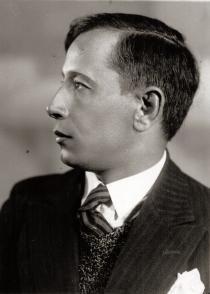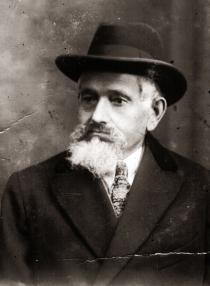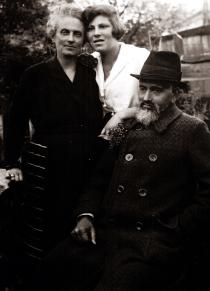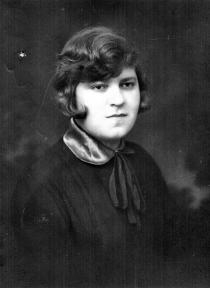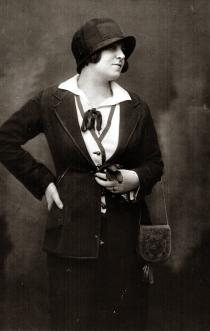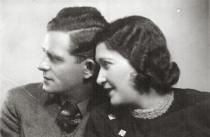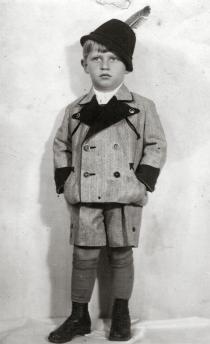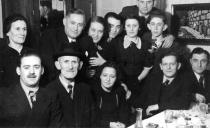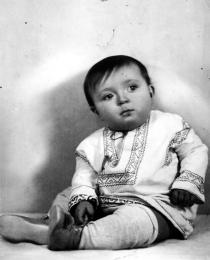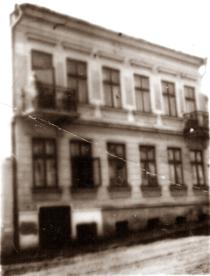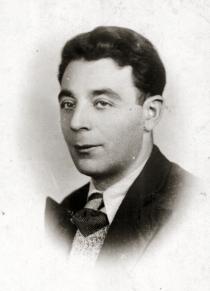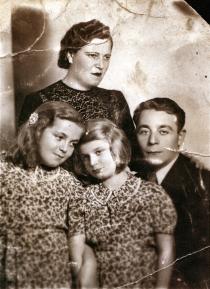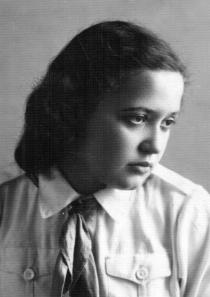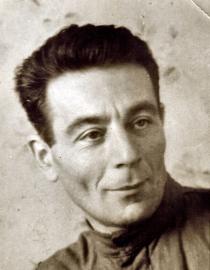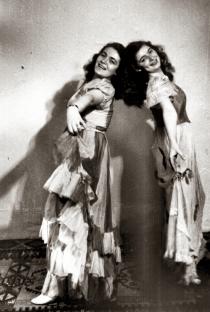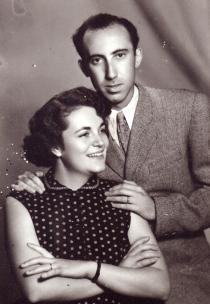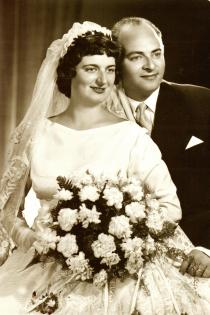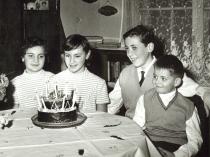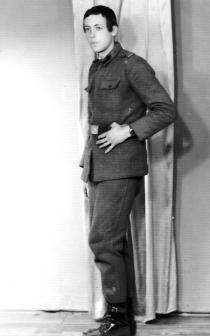This is a photo of the house where we lived in Cernauti. The picture was taken in the 1930s, but I don?t know by whom.
We lived in a rented apartment in this two-storied house, and we had running water and electricity. Cernauti had electricity and running water, only in some villages they might have been missing. Anyway, the house also had a small garden, so my sister and I could play outside as well. The apartment had a hallway, two rooms, a balcony, a kitchen, a pantry and a toilet. We had the box for Keren Kayemet in the house. We had books in the house, some religious ones and many novels because that's what my mother used to read. My mother always had two or three servants, at least before my sister was born, after that there was only a woman who came to clean twice a week. They were all Ruthenian Russians. I remember the woman came to do the laundry; she boiled it and then steamed it. Back then we used a pressing iron that was filled with embers, which made the iron hot. The laundry was always starched, and I know the woman went out on the balcony and then back inside, to air the embers and keep them burning.
There were several families living in that house, and I think only one was Jewish. I remember one family, the Bendelas: they were Romanian, and they spoke German beautifully. They lived upstairs, and their son used to tie a candy or a piece of chocolate on a string and lower it down to us, the kids. The owner of the house, an elderly woman, I don't remember if she was Jewish or not, lived downstairs, with her three sons. One of them was a lawyer, who liked my mother very much and used to court her. My mother also had a friend from her youth, but they visited rarely. There was another Jewish neighbor, he lived next to our house, he was a lawyer, and he always wore one of those bowler hats. He liked my mother very much, and us children as well. Whenever he saw me on the balcony on his way to the office, he used to call out in German, as a joke, with a funny accent, 'Melitta, was mache die Mame zu Hause?' instead of saying, Melitta, was macht die Mama zu Hause? [Melitta, what is mother doing?], although he spoke German perfectly. My father might have had acquaintances, but not real friends, he didn't have time for that. We kept in touch with my mother's relatives, especially Uncle Max, who had his own house behind the National Theater. He invited us over often.
Erika and I were allowed to play in the garden when we were a bit older, but my mother never let us wander the streets alone. My sister was always curious and independent; I remember she used to go out into the street, and one time a coach almost ran her over. I was more obedient and closer to my mother.

